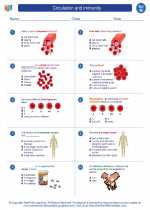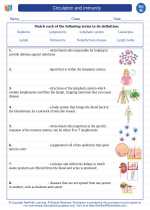Cytosol
The cytosol is the liquid component of the cytoplasm within a cell. It is a complex mixture of water, ions, and organic molecules, and it plays a crucial role in various cellular processes.
Composition of Cytosol
The cytosol is primarily composed of water (about 70% of its volume) and contains various dissolved ions, such as potassium, sodium, and chloride. Additionally, it contains organic molecules, including proteins, carbohydrates, lipids, and small molecules like amino acids and nucleotides.
Functions of Cytosol
The cytosol serves several essential functions within the cell:
- Metabolic Reactions: Many metabolic pathways, such as glycolysis and protein synthesis, occur within the cytosol.
- Storage: It serves as a storage site for various molecules, including glycogen, lipids, and ions.
- Cellular Transport: Cytosol facilitates the movement of molecules and ions within the cell through processes like diffusion and active transport.
- Signal Transduction: It plays a role in transmitting signals from the cell membrane to the nucleus, influencing gene expression and cellular responses.
Study Guide
To study the concept of cytosol, consider the following key points:
- Understand the composition of cytosol, including the relative proportions of water, ions, and organic molecules.
- Learn about the metabolic pathways and cellular processes that take place within the cytosol, such as glycolysis, protein synthesis, and cellular transport.
- Explore the role of cytosol in signal transduction and its impact on cellular communication and gene expression.
- Consider the significance of cytosol as a dynamic and essential component of cellular function.
◂Science Worksheets and Study Guides Eighth Grade. Circulation and immunity
Study Guide Circulation and immunity
Circulation and immunity  Worksheet/Answer key
Worksheet/Answer key Circulation and immunity
Circulation and immunity  Worksheet/Answer key
Worksheet/Answer key Circulation and immunity
Circulation and immunity  Worksheet/Answer key
Worksheet/Answer key Circulation and immunity
Circulation and immunity  Vocabulary/Answer key
Vocabulary/Answer key Circulation and immunity
Circulation and immunity  Vocabulary/Answer key
Vocabulary/Answer key Circulation and immunity
Circulation and immunity  Vocabulary/Answer key
Vocabulary/Answer key Circulation and immunity
Circulation and immunity  Vocabulary/Answer key
Vocabulary/Answer key Circulation and immunity
Circulation and immunity  Vocabulary/Answer key
Vocabulary/Answer key Circulation and immunity
Circulation and immunity  Vocabulary/Answer key
Vocabulary/Answer key Circulation and immunity
Circulation and immunity  Vocabulary/Answer key
Vocabulary/Answer key Circulation and immunity
Circulation and immunity 

 Worksheet/Answer key
Worksheet/Answer key
 Worksheet/Answer key
Worksheet/Answer key
 Worksheet/Answer key
Worksheet/Answer key
 Vocabulary/Answer key
Vocabulary/Answer key
 Vocabulary/Answer key
Vocabulary/Answer key
 Vocabulary/Answer key
Vocabulary/Answer key
 Vocabulary/Answer key
Vocabulary/Answer key
 Vocabulary/Answer key
Vocabulary/Answer key
 Vocabulary/Answer key
Vocabulary/Answer key
 Vocabulary/Answer key
Vocabulary/Answer key
